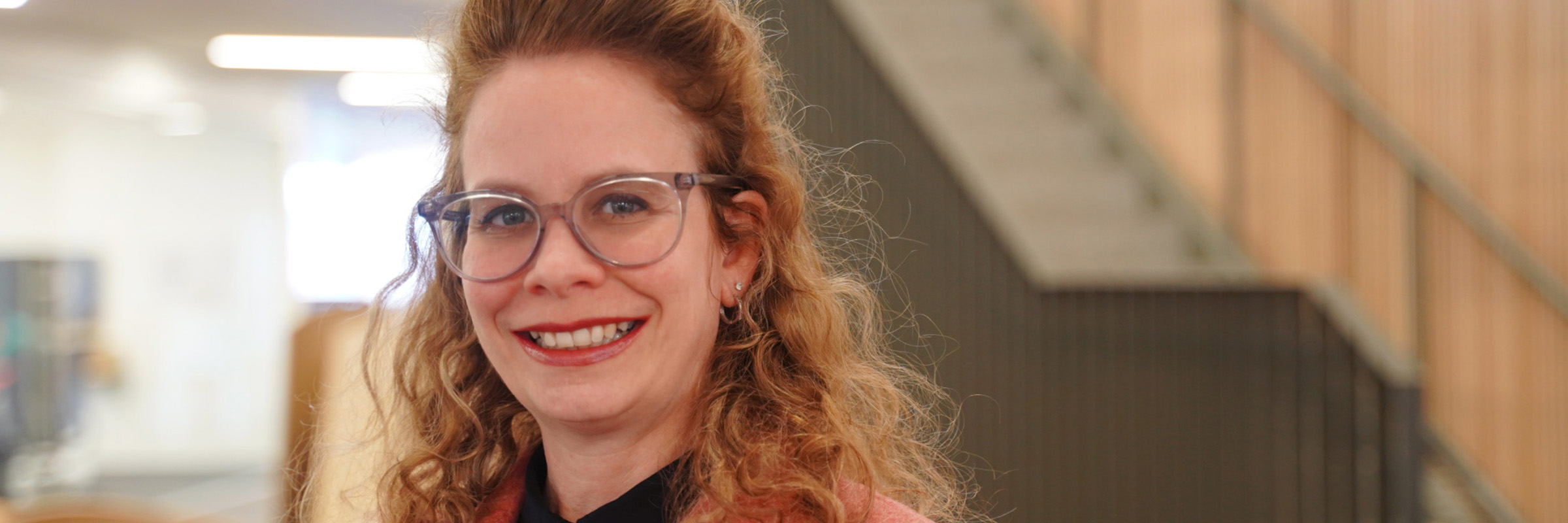Q&A with Online Learning Librarian Hope Kelly
June 23, 2020
Hope Kelly, Ph.D., joined VCU Libraries as Online Learning Librarian in March 2020. Her role merges her passion for library service with expertise in educational technology and online learning. She's a member of the Teaching & Learning team of librarians who work with Focused Inquiry and, starting this fall, Hope begins participating in our Designated Librarian program.
As Online Learning Librarian, Kelly collaborates with librarians to advance the design, development, and assessment of the VCU Libraries’ online instructional content and environments. This is the same sort of support that the CTLE and ALT Lab provide to other faculty. Her expertise in instructional design, educational technologies, and online learning has been exceptionally timely as she joined the VCU faculty as the university moved to all-remote teaching in March 2020.
Kelly came to VCU from the University of Virginia, where she was assistant professor of Instructional Design and Technology. Her contact information and credentials
What strengths do you bring that will help you as a Designated Librarian to Focused Inquiry faculty and students?
For students, I hope to share an attitude of curiosity while covering research skills. I think it's important to encourage individuals’ curiosity as they will be continuing to educate themselves into the future - cultivating wonder about ourselves, our communities, and the wider world is central to my pedagogy.
For faculty, I hope to complement their work in the online environment. This has been a consistent theme throughout my career, starting as a media specialist in a school library and over my years in higher education. I value partnering with faculty in ways that suit them, so listening to their needs and being adaptable lays the groundwork for dynamic teaching collaborations.
How do you plan to approach teaching library sessions for online sections of UNIV 200?
I think the single most important approach to online teaching, just like in-person teaching, is preparation. Having objective-oriented content and activities for our students to engage with requires planning. Many folks have learned that online teaching often requires a bit more planning and content creation in advance as we are conducting our instruction in a computer-mediated environment, so there is an additional layer to figure out how we manage our interactions. I have been preparing by observing our veteran FI Designated Librarians and reviewing many of the excellent lesson plans and materials they have developed. Now I am connecting with FI instructors to determine how to best meet their needs for library instruction within the context of their classes. While I have prepared some asynchronous content to share with them, I recognize that each class will have features of either the curriculum or the methods of the instructor that will inform how we leverage that content and further develop other instructional media or experiences with the goal of further developing our students research skills.
What are your goals for the 2020–2021 academic year?
I am very excited about bringing my knowledge of learning management system (LMS) administration to VCU Libraries to better integrate our librarians and our resources into online courses. Over the next year, I will be working with Learning Technologies to create a specific role for librarians in Canvas. The new role will help eliminate confusion about adding librarians into course sites in roles that don’t make sense (e.g. Instructor, Designer, Student) and provide us with opportunities to engage with faculty and students within their virtual classrooms. The other big project with the Canvas migration will be integrating research guides with the LMS through a learning tool interoperability application. The ultimate goal of this work will be that courses with particular attributes will automatically have appropriate LibGuides mapped directly to them. For example, all UNIV 111 classes could have the UNIV 111/112 LibGuide embedded into the course site. This type of integration can work for subject areas, too.
Where do you find inspiration and energy in your work?
I am fascinated by how people learn and take in information. While we understand a good deal about sensory perception, information processing, and even meaning making, there is so much that is individually unique and situated within communities and culture. I am most curious about how that all plays out in computer-mediated environments.
What are your research interests and how do you intend to further them in your new position?
Like many in the library world, I am interested in access to information; my dissertation work focused on uptake of open educational resources by K-12 teachers and how they used them. My interests for the last while have been rooted in action research as it is pragmatic and can pull from whatever methods may best answer your questions. While oftentimes not generalizable, this approach is powerful in that it can inform how we conduct our work. After developing a quality assurance plan that generated data on the strengths and weaknesses of our online courses, our team at UVA targeted training offerings to meet widespread course design issues. I imagine a similar approach will be helpful for librarians at VCU in the development of training offerings for research guides and other content development tools.
< Previous Next >
 Chat
Chat